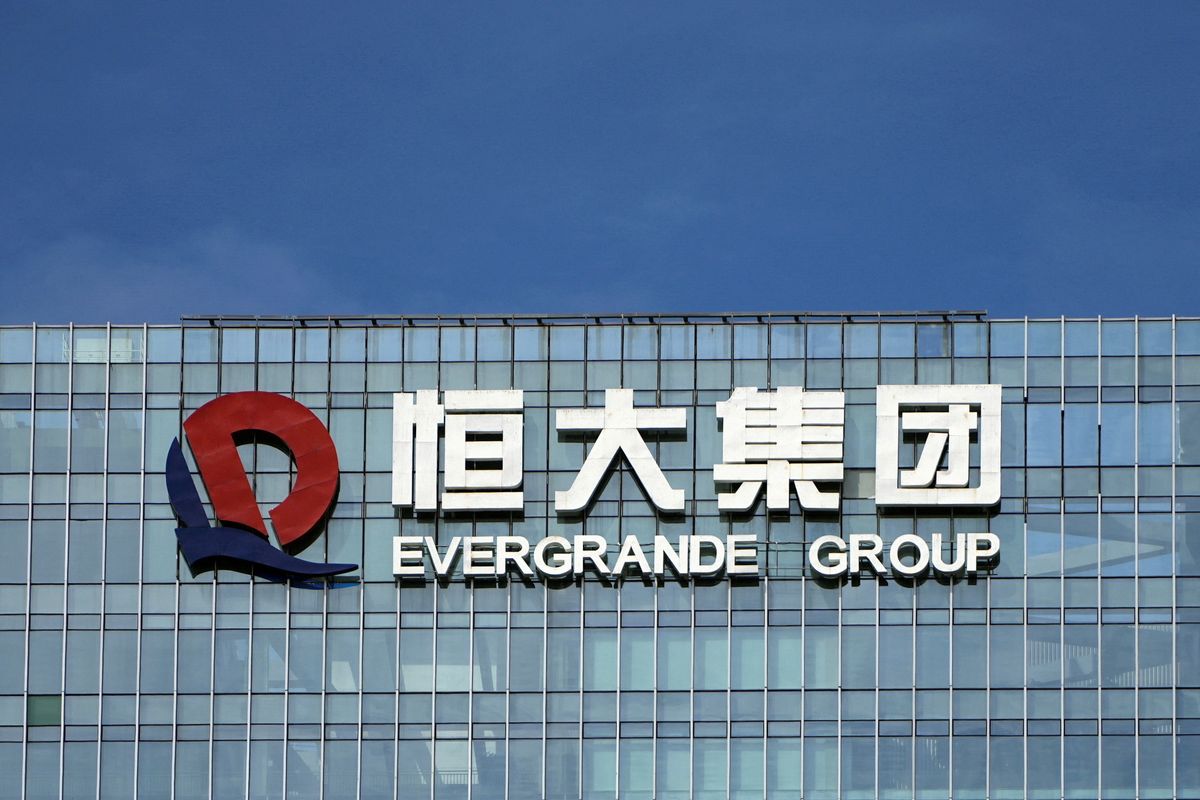China's Evergrande releases long-awaited financial results
China Evergrande’s long-awaited financial results were finally reported Monday.

A few minutes every morning is all you need.
Stay up to date on the world's Headlines and Human Stories. It's fun, it's factual, it's fluff-free.
The backstory: China's property market is a big part of the country's economy, with some estimates saying it makes up anywhere from 17-29% of China's GDP. But it’s faced challenges in recent years. Housing prices skyrocketed, making it harder for regular people to buy a place, and many developers found themselves drowning in debt. In response, the government put in place measures in 2020 to curb borrowing in the sector and restore stability to the market.
In 1996, Evergrande was founded by Xu Jiayin and went on to become China's second-largest property developer by sales in 2020. But in 2021, the property giant sent shockwaves throughout the industry by defaulting on its debts. With over US$300 billion in liabilities, it holds the title of the world's most indebted property developer. This triggered a major shakeup, leading the government to step in and order a debt restructuring for Evergrande.
More recently: In March 2022, the company’s shares were suspended from trading in Hong Kong because it didn’t release its 2021 financial results on time. To avoid being delisted and comply with stock exchange rules, it was looking at a crucial deadline of September 20 to report those results. Evergrande presented a restructuring plan worth billions of dollars a few months ago and needs approval from a majority of its creditors for the overhaul to go through.
The development: China Evergrande’s long-awaited financial results were finally reported Monday. They show the company reported losses of 476 billion yuan (US$66 billion) for 2021 and about 106 billion yuan (US$15 billion) for 2022. The combined net losses over those two years add up to 582 billion yuan (US$81 billion). By the end of last year, Evergrande's total liabilities reached 2.4 trillion yuan (US$340 billion), which is the same as about 2% of China's entire GDP. As for its total assets, they’re valued at 1.8 trillion yuan (US$256 billion). The company will be in court next week to make the next steps toward approving that debt restructuring plan.
Key comments:
“Evergrande’s successful publication would help to avert a forced delisting and advance the company’s debt restructuring,” said Leonard Law, a senior credit analyst with Lucror Analytics Pte. “That said, the results do not really matter ultimately, as we believe the business is already broken.”
“Unsurprisingly, all of those are the state-linked or the stronger developers, so we’re seeing this increasing bifurcation where the strong developers are the state-linked, the large players, and the smaller ones are kind of left to languish, and it will be an increasingly consolidated sector,” said Sandra Chow, co-head of Asia-Pacific research at CreditSights, to CNBC.
“The proposed restructuring will alleviate the company’s pressure of offshore indebtedness and facilitate the company’s efforts to resume operations and resolve issues on shore,” said Evergrande in the filing in March.




Comments ()